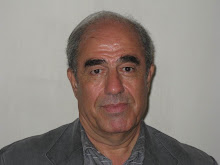The situation of pesticide and chemical market, advertising, transportation and distribution, labeling, worker protection and in general regulatory activities in developing countries is very bad and need immediate support from international scientific community and also from international regulatory agencies to prevent more misuse. Due to the lack of regulatory bodies and enforcement in these countries and specially lack of proper labeling and distribution and finally lack of knowledge in final consumer many cases of suicide using pesticides happens every year in each of these countries. Pesticides are sold in food stores and sometimes in open containers with no labels. Reading the labels before use rarely happens due to lack of ability for reading. In most of these developing countries there is absolutely no enforcement power (if there is a written regulations at all) and licensing procedure for agricultural worker protection and these workers do their spraying with any type of equipment that they can find with no protecting clothing.
Role of local governments and politics: Due to the unstable situations of governments in many of developing countries some very important tasks like pesticide/ chemical regulations and enforcement are ignored and in most cases they only exist on paper. In some of these countries mafia like groups are clearly involved in pesticide marketing and distribution and they also cover some government agents. Unfortunately the recent Global political problems and also the very recent food and environmental crisis are adding to the problem by widening the gap between North as the provider of these compounds and also the place of research bodies and regulatory agencies and South as the receiver of these compounds (sometimes as gift!) and as the blind consumer. Perhaps the worst part of governments and political roles in this bad scenario in developing countries is that all of international conventions that deal with Global pesticide/ chemical problems are in the hand of governments in developing countries and in absolute control of them and this is a big problem. These governments simply and rudely send their political and in most cases non-scientific agents to these international conventions like Stockholm, Basel, IFCS etc. and in surprise these international conventions accept these governmental agents instead of genuine scientific people. Now in the 21 Century it is the time that those people involved in international conventions give more opportunities to representatives of NGOs from developing countries, to the real academic/ scientific people from developing countries instead of only dealing with governments.
Role of scientific/ academic research: Unfortunately academics and those scientists employed by these governments cannot do so much to solve the problem. In most of these developing countries research funds are not available or if it is, is not distributed correctly to reach the real final scientist to conduct the research. Due to the lack of local research on pesticide/ chemicals in these countries scientists use those regulations provided by researchers from developed World and also from Global regulatory agencies and this in part makes more problems. For example regulations written for developed countries are not suited for developing countries due to the lack of proper infrastructures and also different consuming/ eating habits. In oil producing developing countries allocation of the research money is not correct and is never distributed according to the need and according to the country’s problem but unfortunately the money is simply allocated to unnecessary programs and in most of these countries to research on military etc.
Consumer lack of knowledge in developing countries: One big difference between consumers in Northern and Southern countries is level of knowledge of final consumers. In developed countries not only most of people are more scientifically educated as compared to the people in developing countries but also many other factors help the final consumer in developed World about compounds like pesticides. In developed countries many NGOs and community workers are working to make the people aware about what they consume and eat but in developing countries not only the existence of NGOs is under threat but also there is no community work.
Subscribe to:
Post Comments (Atom)

No comments:
Post a Comment